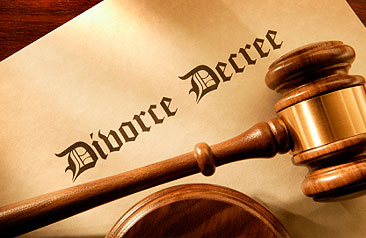Ved Legal comprises of a dedicated team of experts. We offer a multitude of services in the areas of Co-operative and Property law, but we are best known for our expertise in the Co-operative field i.e. Society Formation/Registration as well as Deemed Conveyance, Conveyance thereof. We have vast experience in representing our clients in matters of Society Formation, Deemed Conveyance, and Recovery. We also undertake different types of property matters including Conveyances, Agreements (Rent, Lease and Leave & Licenses), Partnership Firms & Its Registration, Wills, Probates, Succession, Contracts etc..
We also deal with consultation on an annual basis which includes, consultancy regarding by-laws of society, election of the management committee, recovery of maintenance etc.
Ved Legal believes in providing qualitative legal services strictly in accordance with conforming to the highest values of ethics and integrity associated with this noble profession. We strive to achieve a high precedent for providing personalized and accessible legal services to all of our clients since Client satisfaction has always been paramount when considering the philosophy and work culture of the Ved Legal.
Property Law Cases / Property Transfer includes All movable or immovable Property Claims/Suits.
The Indian Constitution does not recognize property right as a fundamental right. In the year 1977, the 44th amendment eliminated the right to acquire, hold and dispose of property as a fundamental right. However, in another part of the Constitution, Article 300 (A) was inserted to affirm that no person shall be deprived of his property save by authority of law. The result is that the right to property as a fundamental right is now substituted as a statutory right. The amendment expanded the power of the state to appropriate property for social welfare purposes. In other words, the amendment bestowed upon the Indian socialist state a license to indulge in what Fredric Bastiat termed legal plunder. This is one of the classic examples when the law has been perverted in order to make plunder look just and sacred to many consciences.
Indian experiences and conception of property and wealth have a very different historical basis when compared to western countries. The fact the present system of property as we know arises out of the peculiar developments in Europe in the 17th to 18thcentury and therefore its experiences were universally not applicable. A still more economic area in which the answer is both difficult and important is the definition of property rights. The notion of property as it has developed over centuries and it has embodied in our legal codes, has become so much a part of us that we tend to take it for granted, and fail to recognize the extent to which just what constitutes property and what rights the ownership of property confers are complex social creations rather than self-evident propositions.
Transfer Of Property
If you want to transfer registered land or property, you must use the correct form depending on whether you are transferring the whole or part of the actual land or property. You will need to send us a completed form TR1 if you wish to transfer: the whole of the land/property a share of the property/land by adding someone to the ownership, for example, on marriage or civil partnership when the current owner(s) is transferring to themselves and their new partner a share of the property by removing someone from ownership, for example, when a relationship breaks down and one or more of the current owner(s) are transferring to the remaining owner(s) a share in the property/land by adding additional owners, for example when E and F want to add G and H to the ownership, so E and F transfer to E,F G and H, a share in a property, for example, when I J and K own the property/land and I no longer wants to be an owner so I, J and K transfer to J and K.
Having an authorized property without any legal issues is very important for a new property investor. With an increasing number of frauds in a land sale, it is quite difficult to sense the trouble at the initial stages. In such cases, one of the most important legal security towards the ownership of the property will be the sale deed. It is mandatory that every investor is aware of the importance and the basis of a sale deed. This will protect him from being cheated by any developers and owners.
Agreements & Contracts
While preparing property agreements you bear in mind some basic points. This not only helps you in ensuring the validity of an agreement but also saves time and avoids unwanted delays from the seller. Here are some tips that help you to ensure the validity of your property.
1. Terms for Payment
The buyer and seller have to agree to the terms of the price and other expenses with regard to the transfer of property. The document must contain the terms and method of payment agreed by both buyer and seller, the time required for payment of the last installment of property. The lawyers of both the buyer and seller must go through the documentation and sign them.
2. Transfer Title of Property
The title of the property is an important document for the sanction of mortgage or loan from the bank. The title of property should be transferred to the buyer’s name once the seller receives the amount agreed with the buyer. Transfer of title of the property is the last step in the transaction before transferring the property. Seller has to register the property in the buyer’s name in local registrar office or under whichever jurisdiction the property belongs to.
3. Stamp Duty
Stamp duty rates are fixed for properties by the authorities. The rate may vary from state to state. The buyer has to ensure that seller has registered the property in buyers name on the rate levied for the property transferring.
4. Sales deed
Sales deed is an agreement between the buyer and seller. One needs to go through all the requisite documents in detail with professional help If any property has multiple owners, then each owner has to sign on the documents.
(B) To Issue search title Reports
A title search is a process that is performed primarily to determine the answer to three important questions: Does the seller have a saleable interest in the property? What kind of restrictions or allowances pertains to the use of the land (real covenants, easements, or other servitudes)?
Do any liens exist on the property which needs to be paid off at closing (mortgages, back taxes, mechanic’s liens, or other assessments)?
Anyone may do a title search. Documents concerning conveyances of land are a matter of public record. These documents are maintained in hard copy format or sometimes scanned into image files but the information contained within the documents is typically not available in a data format as the records are descriptions of legal events which contain terms, conditions, and languages in excess. It is often the case
that people choose to contact a title company or attorney to conduct an exhaustive title search. The process of performing a title search involves accessing the official land records for the subject property. Each record is a document evidencing an event which occurred in the history of the property. A deed records an event of property transfer, mortgage documents the collateral interest of a home loan, and a lien documents a claim against the property in favor of another. In each recorded event, the document indicates parties of grantor and grantee. The grantor is the party transferring away property rights, and the grantee is receiving property right. In the case of a deed, the grantor would typically be the property seller, and the grantee the buyer. A mortgage grantor is the borrower of the loan since they are giving away property rights to the lender, or grantee.
(C) Property Claims/Suits
Property rights are rights over things enforceable against all other persons. By contrast, contractual rights are rights enforceable against particular persons. Property rights may, however, arise from a contract; the two systems of rights overlap. In relation to the sale of land, for example, two sets of legal relationships exist alongside one another: the contractual right to sue for damages, and the property right exercisable over the land. A minor property rights may be created by contract, as in the case of easements, covenants, and equitable servitudes. A separate distinction is evident where the rights granted are insufficiently substantial to confer on the non-owner a definable interest or right in the thing. The clearest example of these rights is the license. In general, even if licenses are created by a binding contract, they do not give rise to property interests.
For More information please contact us:
Consultants for Housing Co-operative Society in Pune
Ved Legal Associates
Email: [email protected] / [email protected]
Mobile: +91 9763040088
EXPERT IN CONVEYANCE, DEEMED CONVEYANCE OF CO-OPERATIVE HOUSING SOCIETIES.
ASK AN EXPERT


